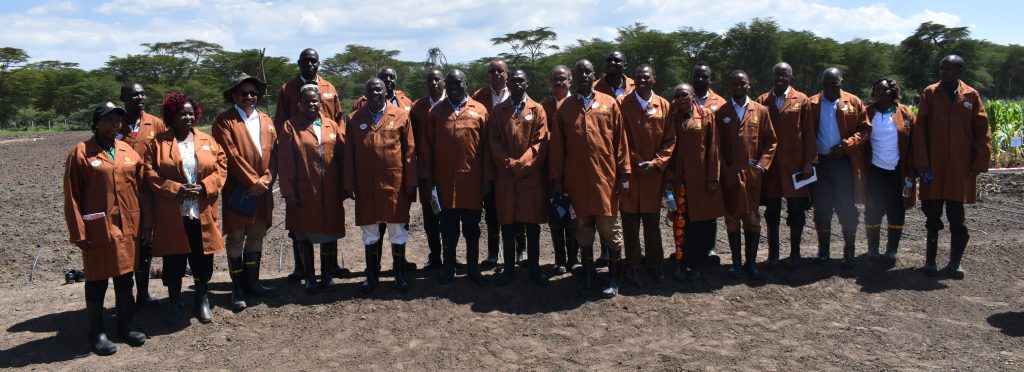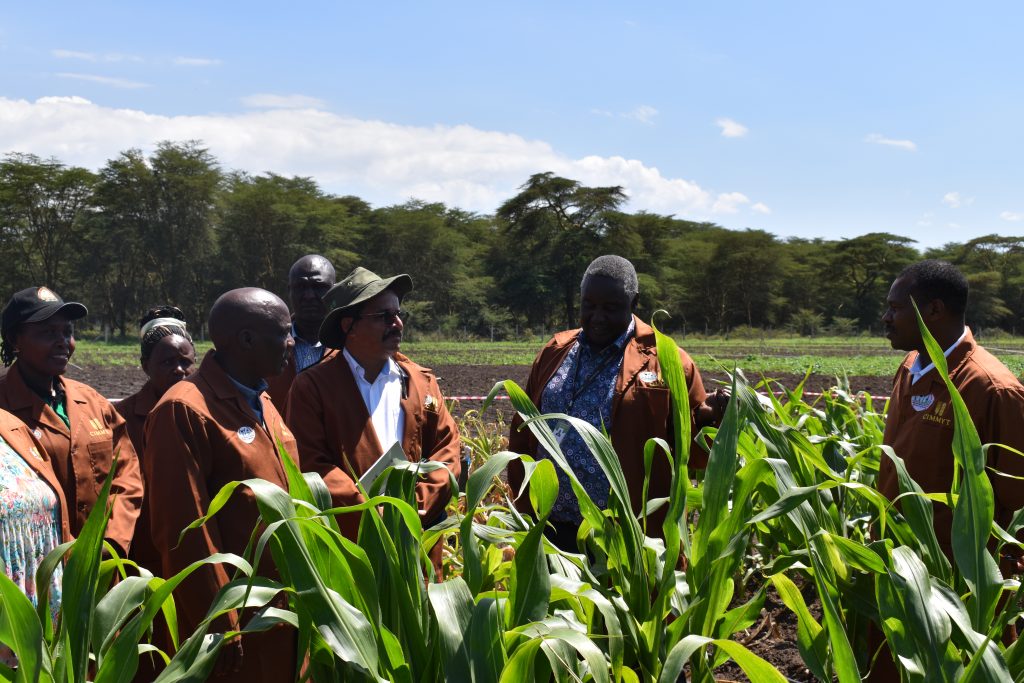Kenya Seed Company takes strides against Maize Lethal Necrosis (MLN) in Bomet County
In a significant effort aimed at enhancing agricultural productivity and combating the Maize Lethal Necrosis (MLN), the Kenya Seed Company officially opened its office in Bomet County. During the inauguration, a new MLN-tolerant maize variety was also unveiled, marking a crucial step toward providing certified disease-free seeds to farmers in the region.
The event, held at Bomet on January 16th, brought together representatives from a number of technical institutions, including National Cereals and Produce Board (NCPB), Kenya Plant Health Inspectorate Service (KEPHIS), Kenya Agricultural and Livestock Research Organization (KALRO), Pest Control Products Board (PCPB), New Kenya Cooperative Creameries (KCC), Agricultural Development Corporation (ADC), International Centre of Insect Physiology and Ecology (ICIPE), and CIMMYT. Notable guests included Agriculture Cabinet Secretary Mithika Linturi, Principal Secretary for Agriculture Paul Rono, local leaders, farmers, and officials from both national and county levels of government. Their collective expertise was dedicated to supporting this initiative.
The event focused on MLN, a viral disease that emerged in Kenya in 2011, presenting challenges to maize crops. Stakeholders seized the opportunity to refresh their knowledge and gain insights into effective MLN mitigation strategies.

The need for the event arose following the development of an action plan by the Multi-Institutional Technical Team (MIIT) aimed at managing MLN in Bomet County. A key strategy in this plan involved the use of certified seeds that are tolerant to MLN, highlighting their importance in the sustainable management of the disease. In December 2023, Dr. Paul Ronoh, Principal Secretary of the State Department of Agriculture, paid a visit to CIMMYT’s MLN facility in Naivasha to support these efforts, where he praised CIMMYT’s work in breeding and disseminating maize varieties resistant to MLN.
Agriculture Cabinet Secretary Mithika Linturi highlighted the collaborative efforts between the Kenya Seed Company and Governors in distributing MLN-tolerant seeds. This partnership aims to contribute to enhanced food and nutrition security in Bomet and neighboring counties.
Representing the technical institutions, Zachary Kinyua from KALRO elaborated on the collaborative research undertaken to ensure that MLN-tolerant maize effectively reaches farmers. “Our work is driven by science and technology, and we collaborate with various organizations to combat the disease.”
During the event, KEPHIS provided technical advice on seed movement procedures, PCPB advised on recommended chemicals for MLN vector control, and ICIPE, CIMMYT, and KALRO updated participants on MLN mitigation measures, especially in Bomet, which has been identified as a hotspot for the virus. CIMMYT, alongside other technical stakeholders also disseminated information through flyers and MCMV immunostrip rapid test demonstrations, emphasizing the collective effort to control and manage MLN in the region.

A notable highlight was the unveiling of a new seed dryer designed to assist in post-harvest measures. This aligns with broader efforts to address challenges affecting agricultural productivity, including significant losses from MLN and limited access to drying facilities. Additionally, the Agriculture Cabinet Secretary flagged off four 10-ton capacity mobile grain dryers, with plans for an additional dryer at the Sotik NCPB Depot. Bomet Governor Hillary Barchok demonstrated a proactive approach by purchasing 20 motorbikes for MLN extension staff and providing a comprehensive MLN technical brief for reference.
CIMMYT has launched several initiatives to address the threat of MLN in Africa. These include the establishment of a large-scale dedicated MLN screening facility in collaboration with KALRO Naivasha in Kenya, a fast-track breeding program implemented by CIMMYT and national partners to deliver new resistant varieties, efforts to control the spread of MLN through improved diagnostics, surveillance, and maize chlorotic mottle virus (MCMV)-free commercial seed production, along with an in-depth study into the epidemiology and transmission mechanisms of MCMV. CIMMYT has trained several NPPO’s, NARES, SME’s members to under MLN diagnosis, management practices, which has supported them to strengthen their partners network in Sub- Saharan Africa.
Scientists:
Suresh, L.M.
Prasanna, B.M
Trackback from your site.
